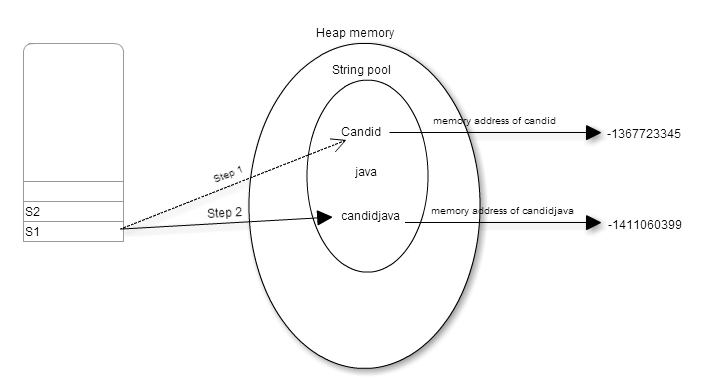Why Are Strings Immutable in Java? Vital Understanding for Developers
What Is Unalterable Strings and How It Functions
In the realm of programs, recognizing the idea of unalterable strings is paramount for producing robust and secure applications. Unalterable strings refer to strings that can not be modified after they are produced, ensuring data integrity and predictability within the code. This essential principle plays a critical duty in numerous shows languages and offers a special technique to managing data. By checking out the ins and outs of exactly how unalterable strings function, one can reveal a globe of benefits and opportunities that can elevate the quality and effectiveness of software program advancement.
The Basics of Unalterable Strings
Immutable strings, as a basic principle in programs, are character series that can not be transformed when they are produced. This suggests that when a string is assigned a value, that value can not be changed. In languages like Python and Java, strings are unalterable things, bring about numerous ramifications in regards to memory monitoring and information integrity.
Among the vital advantages of immutable strings is that they offer a feeling of security in information manipulation. Because the material of an immutable string can not be customized, it guarantees that the original data remains undamaged, reducing the threat of unexpected modifications throughout program execution (Why are strings immutable in Java?). This property likewise streamlines debugging procedures, as developers can trust that when a string is defined, its value will not be inadvertently changed
Furthermore, unalterable strings assist in reliable memory use. When a brand-new string is developed based on an existing one, instead of modifying the original string, the brand-new value is stored individually. This strategy boosts performance by reducing memory fragmentation and simplifying memory allotment processes. Generally, recognizing the basics of immutable strings is critical for understanding programming concepts and enhancing code effectiveness.
Benefits of Unalterable Strings
Structure upon the security and efficiency advantages of unalterable strings, their advantages include boosting code integrity and streamlining concurrent programming tasks. By being unalterable, strings can not be customized after production, which removes the threat of unplanned changes in the data they keep. This integral immutability makes certain that when a string is created, its value remains continuous throughout the program's implementation, reducing the possibilities of bugs triggered by unexpected alterations.
Furthermore, immutable strings contribute to code dependability by making it simpler to reason about the state of a program. Because strings can not be transformed, designers can rely on that a string will constantly hold the very same value, streamlining debugging and upkeep efforts. This predictability leads to a lot more trustworthy and secure codebases.

Application in Programming Languages
Within different programming languages, the consolidation of immutable strings is a fundamental aspect that affects exactly how information is dealt with and adjusted within code frameworks. The implementation of unalterable strings varies across various shows languages, with each language providing its own mechanisms to support this principle.

In comparison, languages like C and C++ do not have built-in assistance for immutable strings. Programmers in these languages must by hand carry out immutability by implementing policies within their code to protect against straight adjustments to string things.
Best Practices for Dealing With Unalterable Strings
When handling immutable strings in programming languages like Java and Python, adhering to ideal techniques ensures secure visit the website and reliable data adjustment. Among the key ideal methods is to make use of StringBuilder or StringBuffer rather of directly controling strings, particularly when dealing with considerable concatenation procedures. These courses provide mutable options for string adjustment, helping to avoid unnecessary memory allowances and enhancing performance.
Additionally, when working with delicate information such as passwords or API tricks, it is vital to avoid saving them as simple message in immutable strings. Using protected storage mechanisms like char selections or specialized collections for taking care of sensitive details assists mitigate security threats connected with immutable strings.
Real-world Applications and Examples
Discovering functional implementations of unalterable strings in numerous industries reveals their substantial effect on information stability and system reliability. In the healthcare field, unalterable strings play an essential duty in making certain the safety and confidentiality of patient information. By stopping unauthorized modifications to sensitive details such as clinical records and prescriptions, unalterable strings help keep conformity with strict personal privacy regulations like HIPAA.
Banks likewise gain from the immutable nature of strings to boost the protection of customer data and deal documents. Immutable strings aid protect against fraudulence and unauthorized changes to monetary information, providing a durable protection versus cyber threats and ensuring the depend on and confidence of customers.

Conclusion
To conclude, unalterable strings are repaired and stable sequences of characters that provide benefits such as string security and improved efficiency in programming. They are implemented in numerous programming languages to make sure data honesty and security. Finest methods for dealing with unalterable strings consist of avoiding direct adjustments and utilizing methods that return new string items. Real-world applications of immutable strings include information security, caching, and string control tasks.
Unalterable strings refer to strings that can not be changed after they are produced, ensuring data integrity and predictability within the code. When a brand-new string is developed based on an existing one, rather than modifying the original string, the brand-new worth is kept separately.In languages like Java and Python, strings are immutable by default, meaning that once a string item is created, its value can not be altered - Why are strings immutable in Java?. Best practices for functioning with unalterable strings consist of preventing straight adjustments and making use of techniques that return new string objects. Real-world applications of unalterable strings include data file encryption, caching, and string control tasks